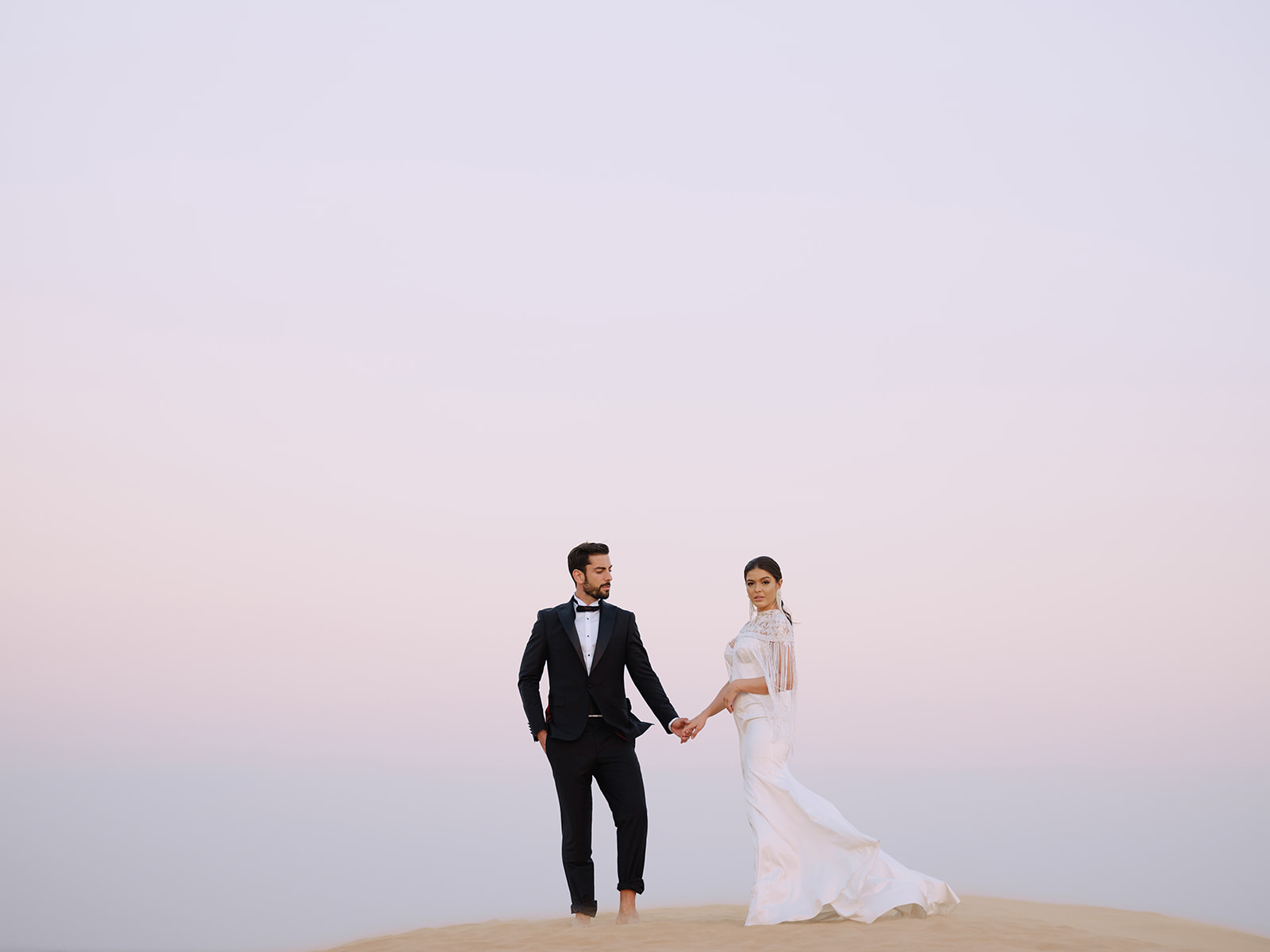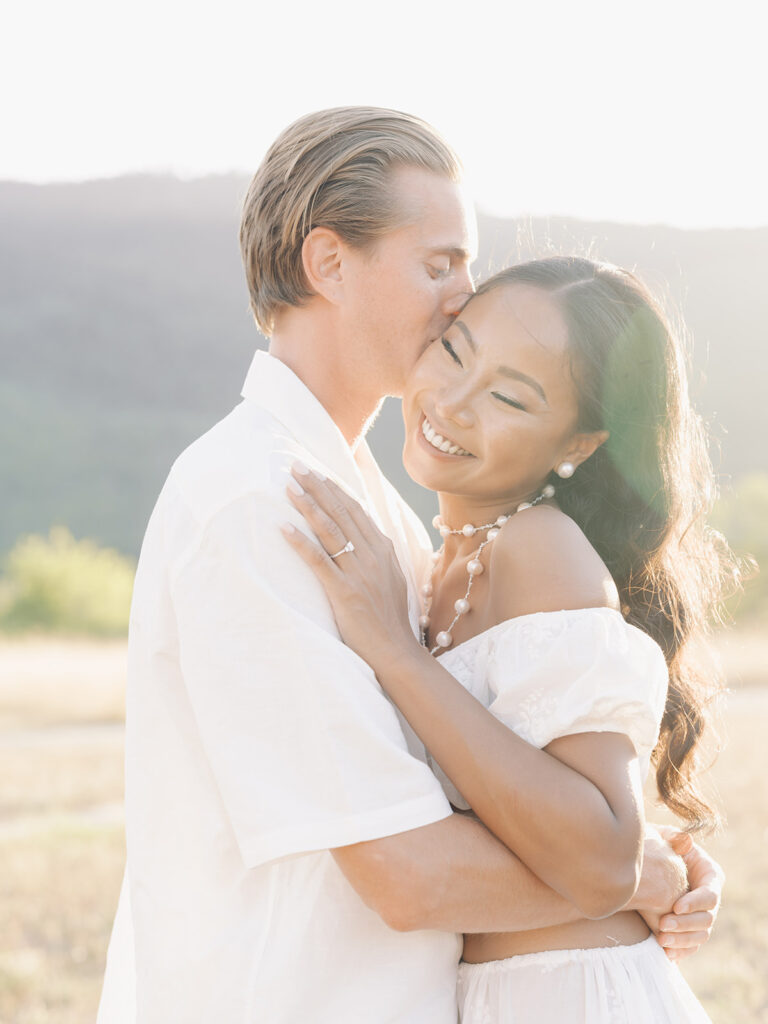I keep discovering and exploring new wedding destinations around the world every year. Dubai and the United Arab Emirates have been constantly developing and now become a popular international wedding centre. As a female photographer, I never expected that I would leave my heart in Dubai.
After having a valuable experience of photo shooting weddings and events at the most luxurious venues, such as Armani Hotel, Versace Hotel and The Atlantis on Jumeirah Palm in Dubai, I fell in love with the spirit and cultural diversity of the city. Despite being an international megapolis with a huge variety of traditions brought from all end of the globe, the Middle Eastern culture naturally prevails here. It seems so old and unbreakable, but at the same time, it deserves a special approach to address all the details.
Female photographer & female filing crew
That is why Still Miracle has adapted the team to a female only crew. Our team includes female photographer and female videographer accompanied by female colleagues (assistants) who are taking care of all the elements of the traditional Arab weddings to honour all the traditions. We have also developed a special wedding photography process which is in line with all the privacy and confidentiality rules, and protects photographs and videos made by female only filming crew from being exposed or viewed by men.
Wedding traditions in the United Arab Emirates
The United Arab Emirates is rightfully considered the country of a true oriental tale. Dubai (as an international cultural capital) and the whole country are very rich culturally and spiritually. Thanks to this, each event in Dubai is distinguished by its scale and traditional elements.
A wedding in the Arab world is the most important event. In traditional society, the wedding is a historical moment when two large families unite. In the Middle East and in the United Arab Emirates, it is traditional to approach this moment with particular attention. Now Arab (Muslim) customs are intricately intertwined with modern world trends and vary depending on the country, area (urban or rural), and of course, family. For example, in the UAE wedding traditions may also vary in Dubai and other emirates.
Ransom of the bride
There is a tradition in many nations of the world that the groom’s side pays a ransom to the bride’s family. Historically, this was done to compensate for the lost labour force. Today, some countries have completely abandoned this tradition, or make part of a festive entertainment program out of it. But the United Arab Emirates still honours the ransom. The amounts may reach thousands of dollars.
Inviting guests
Arab wedding traditions are often amazing. Weddings of their own size and the number of guests at the wedding are just that. Hundreds of people can be invited even to the most modest celebration in the circle of relatives and friends, but what can we say about what the wedding of an Arab sheikh should be like. On it, the number of guests can exceed several thousand. This is due to the fact that family and friendship ties are highly respected in the UAE. It is also generally accepted that the larger and grander the event, the happier the life of the newlyweds will be.
Pre-wedding days
On the days before the wedding, the bride is presented with many gifts, as well as a dowry is collected, it remains her purely personal property. The groom, like all his relatives, gladly presents the future wife with the best jewellery, materials for sewing dresses or outfits.
Wedding Celebrations
The UAE is a strict Muslim country. Therefore, there, as in some other Arab states, there is a tradition according to which men and women should be separated. For this, the wedding is celebrated in two luxurious halls: male and female. The groom on his side accepts gifts and congratulations. But this does not mean that he does not see his bride at all. Having warned in advance, he nevertheless enters the women’s room to admire his chosen one and often get to know her, because the bride and groom are forbidden to see each other before the wedding. Only female photographer and female videographer are allowed to enter and be present at the bride’s party.
The Emirati wedding traditions are conservative and require separate wedding celebrations. It is mandatory that all guests at the bride’s part get covered once the groom comes in, and the photos and any footage of the females must not be seen by or shared with men.
A wedding in the UAE is very different from the usual European ones. Islam forbids noisy parties, alcohol, songs and dances. Therefore, both the groom’s and the bride’s sides may quietly sit in their halls, eat, smoke hookah, accept congratulations and talk on various topics of interest to society.
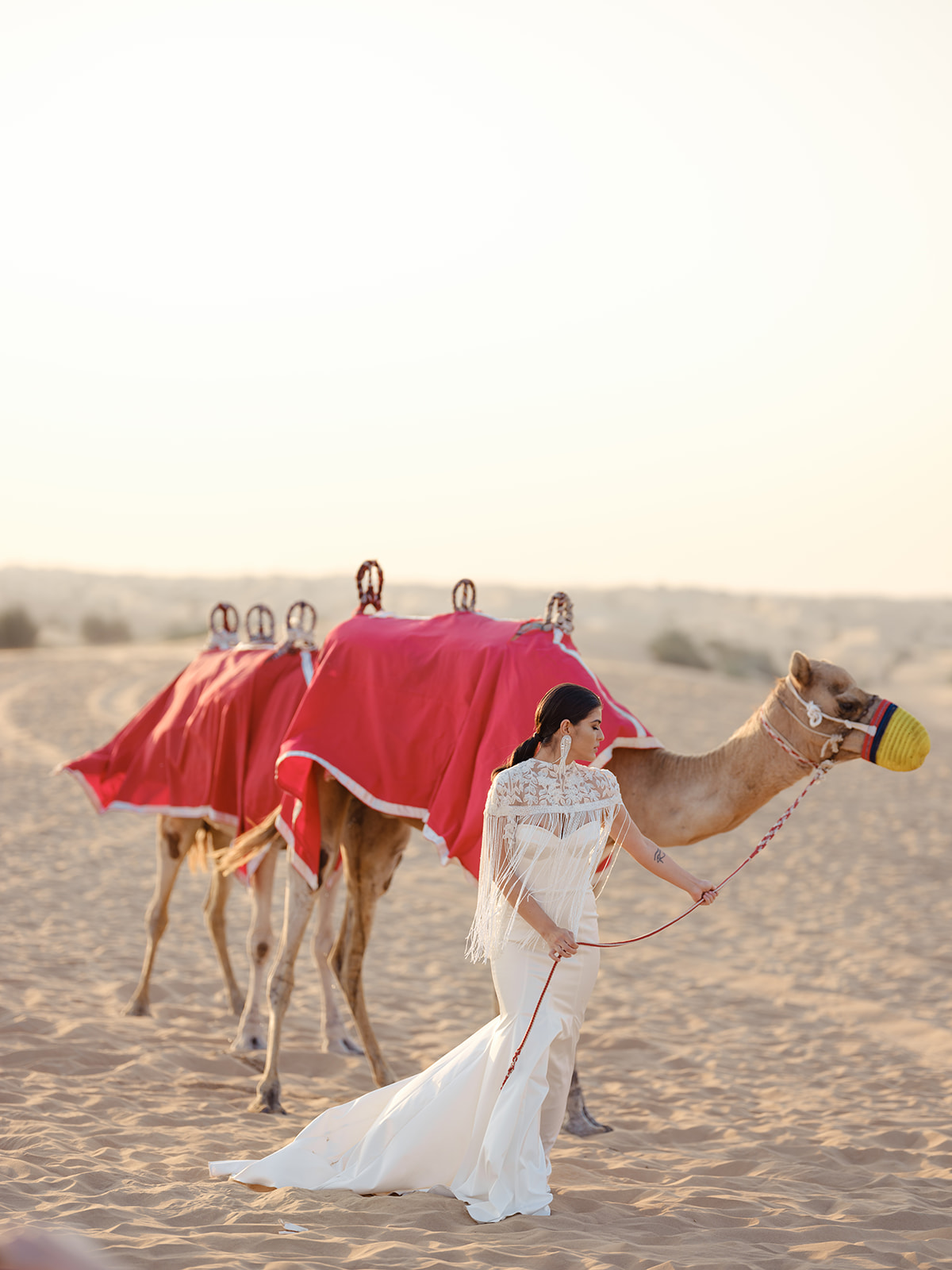
Wedding Dress
The wedding dress of the bride in the UAE deserves a special attention. Despite the fact that all the dresses are closed, made of expensive fabrics and decorated with many precious stones, they always look insanely luxurious. Having access to the bride’s reception and celebration as a female photographer, it is a great opportunity to make exclusive portraits of the bride.
An Arab wedding dress doesn’t have to be white. Often brides choose blue, pink, gold outfits. The dress can be decorated with national embroidery and patterns, the outfits are richly embroidered with gold threads, jewellery, pearls and rhinestones. The image of an Arab bride should be chic, and its final and very important element is a wedding hijab. Stylish and modern designers have combined it with a veil, making the outfit even more unique and incredibly beautiful.
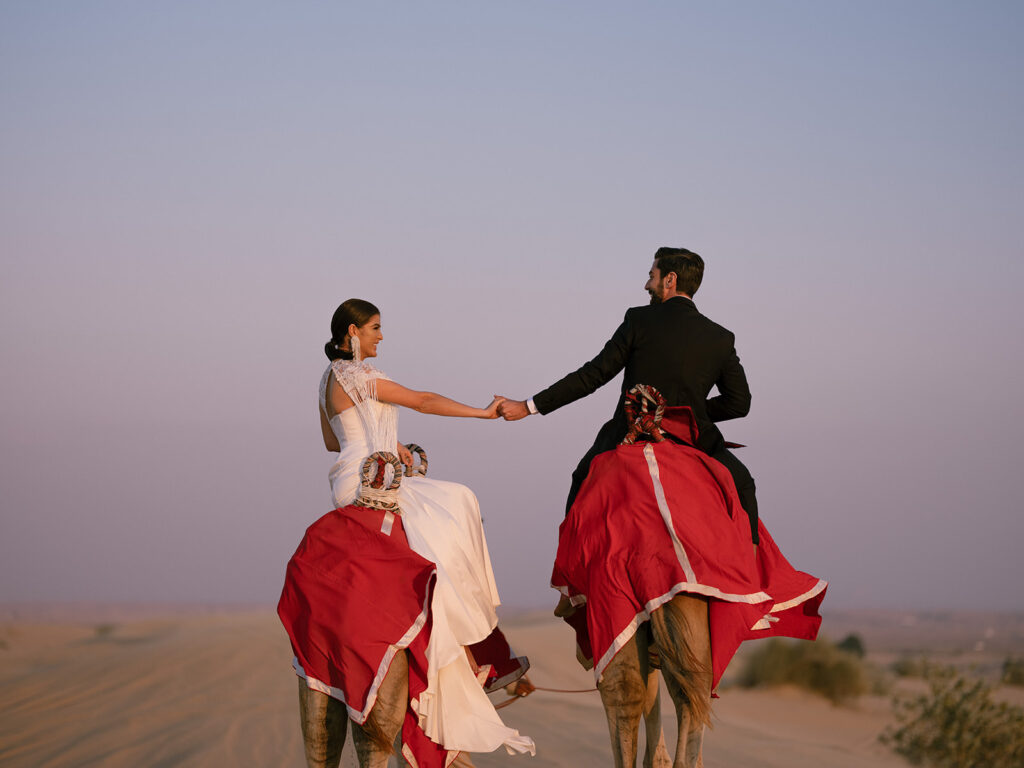
Wedding Day
The first to meet are women – members of both families. Sometimes the future groom himself is present at these meetings: here he can talk with the bride and finally decide whether they are suitable for each other. This is followed by a meeting of the male half of the families. Now at the bride’s house. During this meeting, the head of the groom’s family formally asks for the bride’s hand, and the head of the bride’s family gives consent. The families then decide on the mahr and accept the treats.
The engagement follows. Usually, it takes place at the bride’s house: the future spouses exchange rings in the presence of close relatives. At the same time (or the day before the wedding), the milha may take place. The marriage is registered in the Sharia court, and some families invite a judge to the bride’s house. Representatives of the newlyweds should be present at the ceremony – the bride’s father and two more Muslim witnesses must be present. In the Emirates, milha is most often held in separate rooms for men and women of two families, and only a religious sheikh and children under eight years old can move between them.
Sometimes, on the eve of the wedding, a holiday is organised in she bride’s house, at which the groom’s family presents jewellery to the bride, and the future husband puts them on her to the songs and dances of relatives. But it happens that gifts from the groom’s relatives are worn on the bride right during the wedding feast. On the eve of the celebration, gifts are given by other invitees to the wedding. And in some Arab countries, guests’ gifts are given throughout the entire “mubarak”.
One of the favourite celebrations that are organised before the wedding by most of the Emirates, as well as residents of the Gulf countries, Egypt and Sudan, is the so-called “night of henna” (“Laylat al-hinna”). The main event of this Middle Eastern bachelorette party, for which the bride gathers her relatives and girlfriends, is the application of traditional henna patterns on the hands and feet of women.
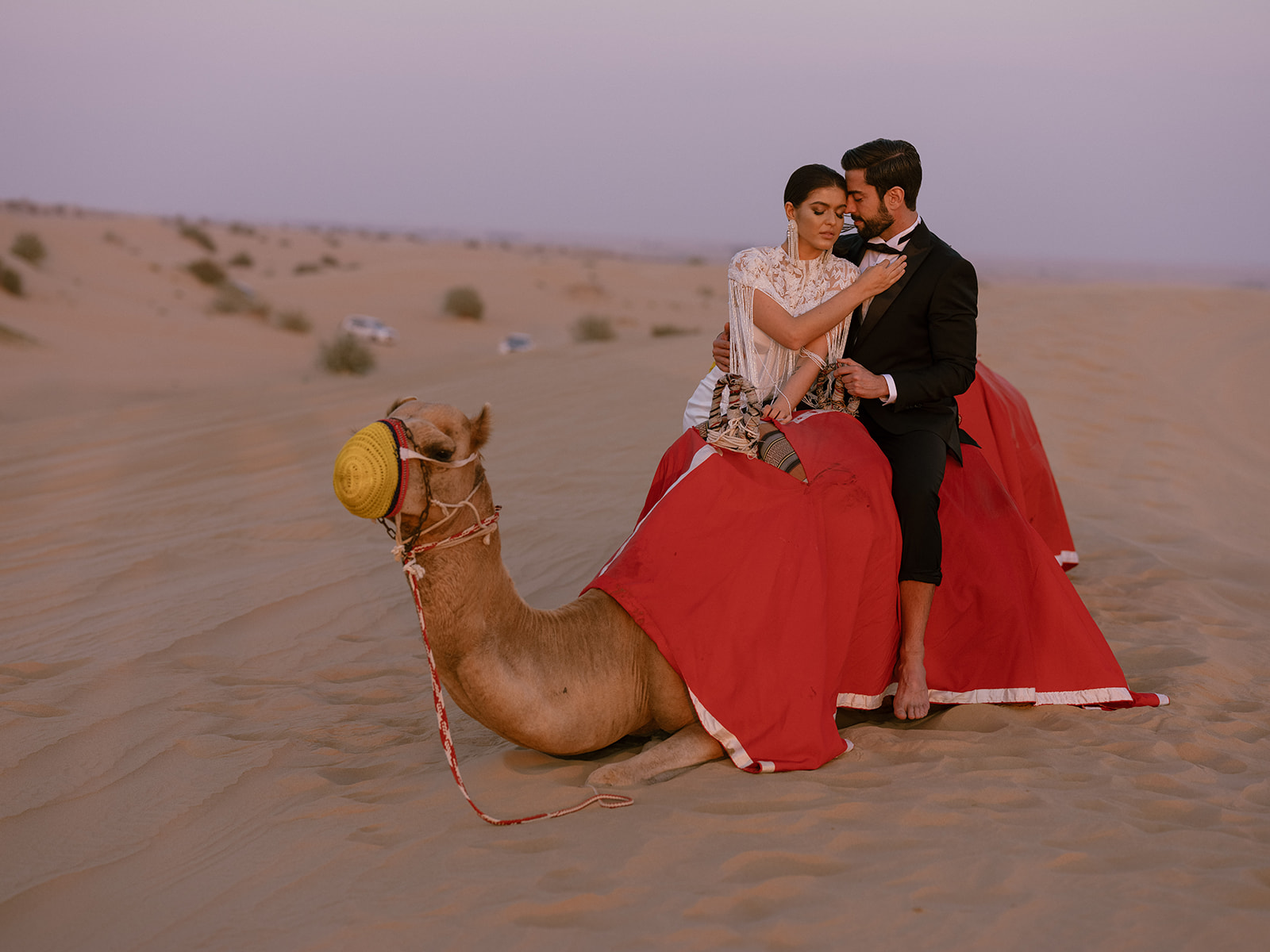
Zaffa
Large-scale and luxury weddings are popular in Dubai and they are not limited to the modest zaffa ceremony (in Arabic there is even a special verb “zaffa” – “to take the bride to the groom solemnly”).
The process is celebrated on a grand scale – at home, in hotels and special halls, which offer wedding services in abundance in the Arab countries, including the UAE, Qatar, Oman. Sometimes ceremonies are held in traditional tents. All guests are sent invitations on behalf of men – heads of two families
